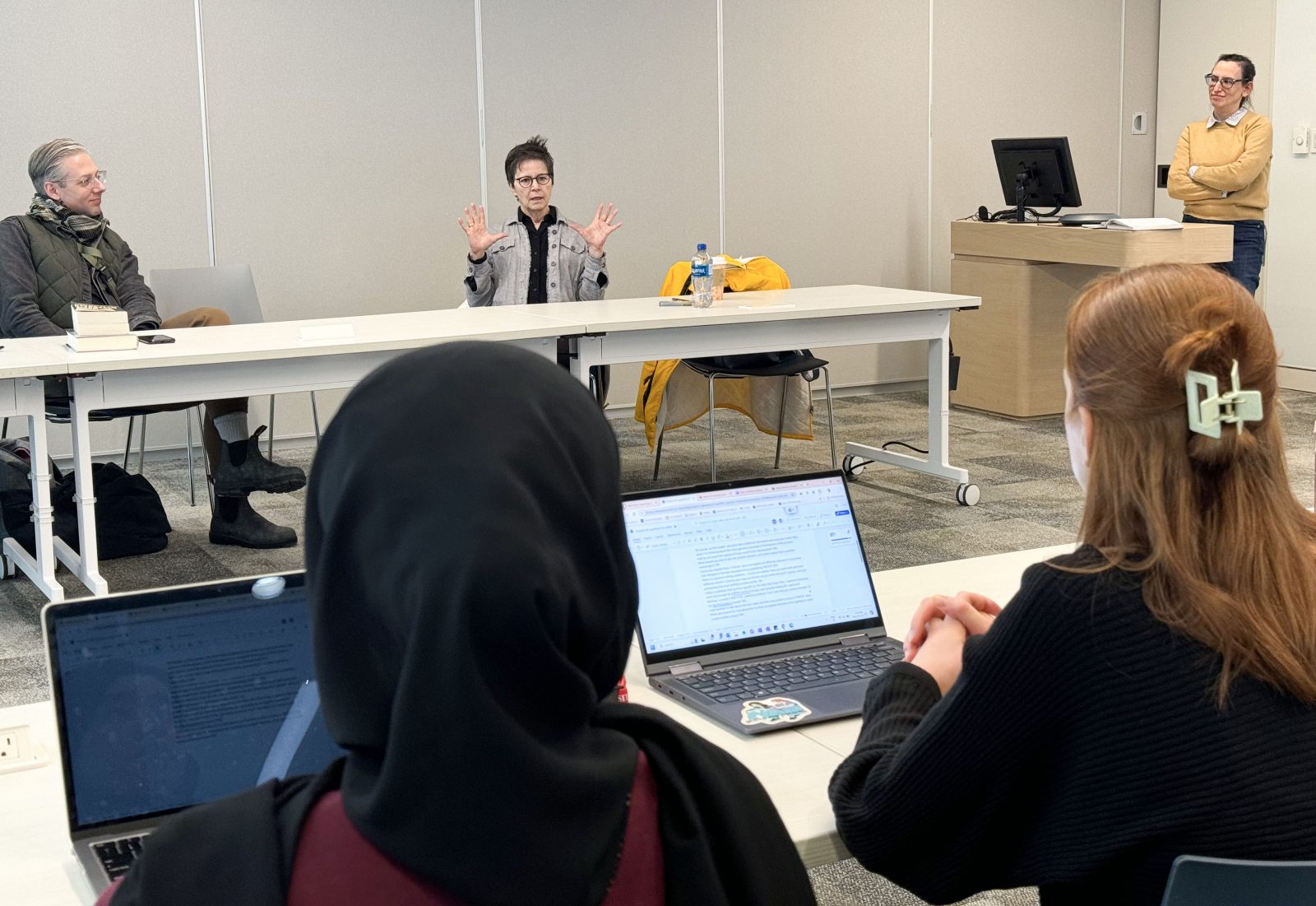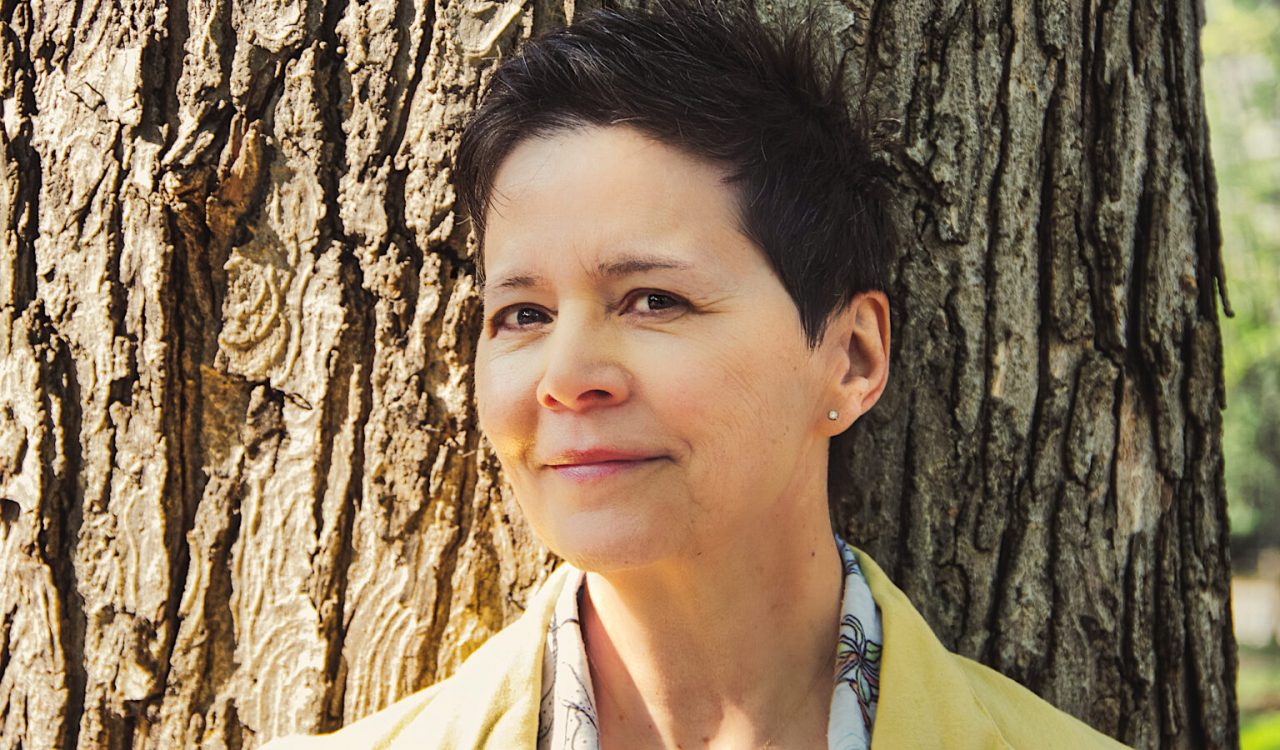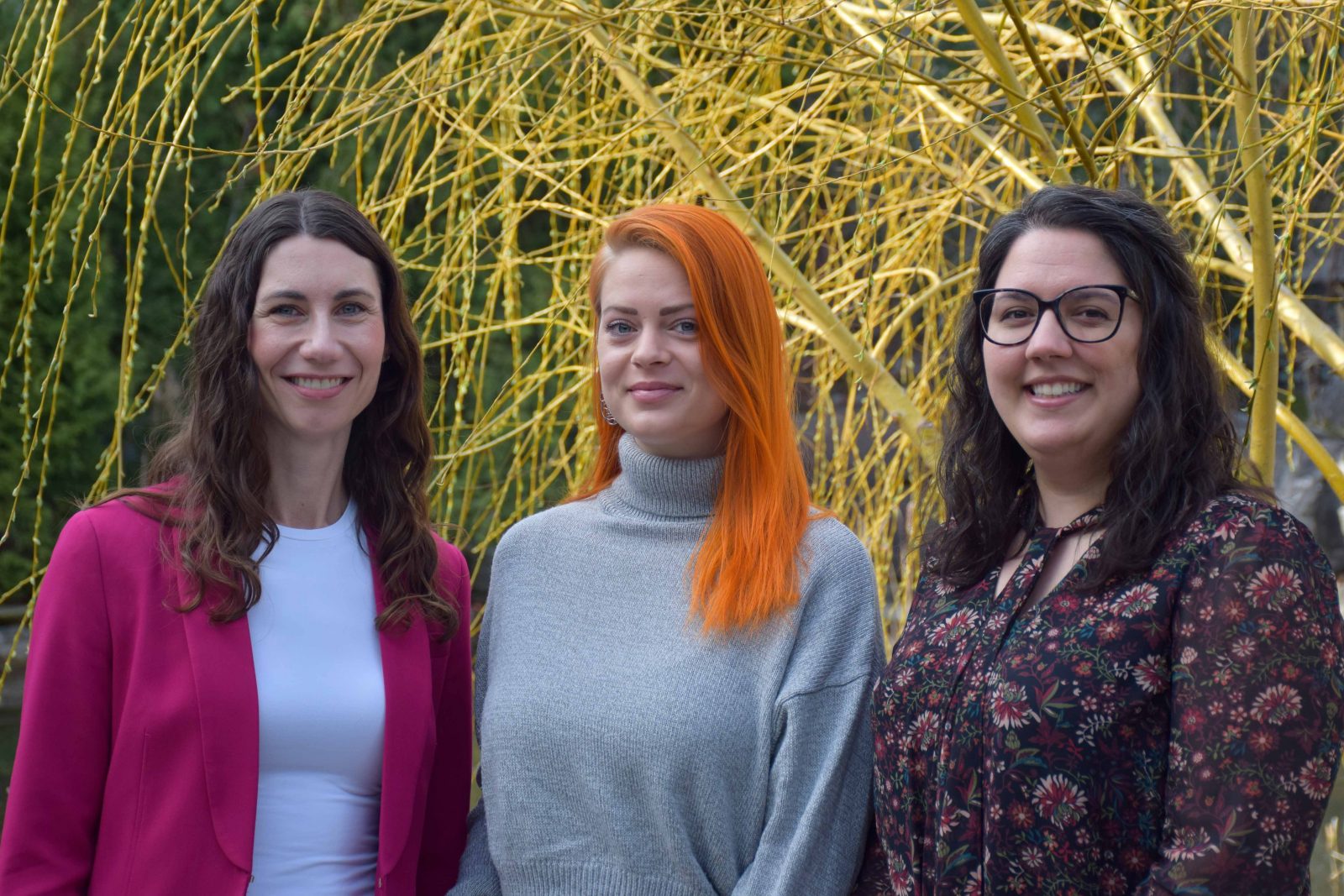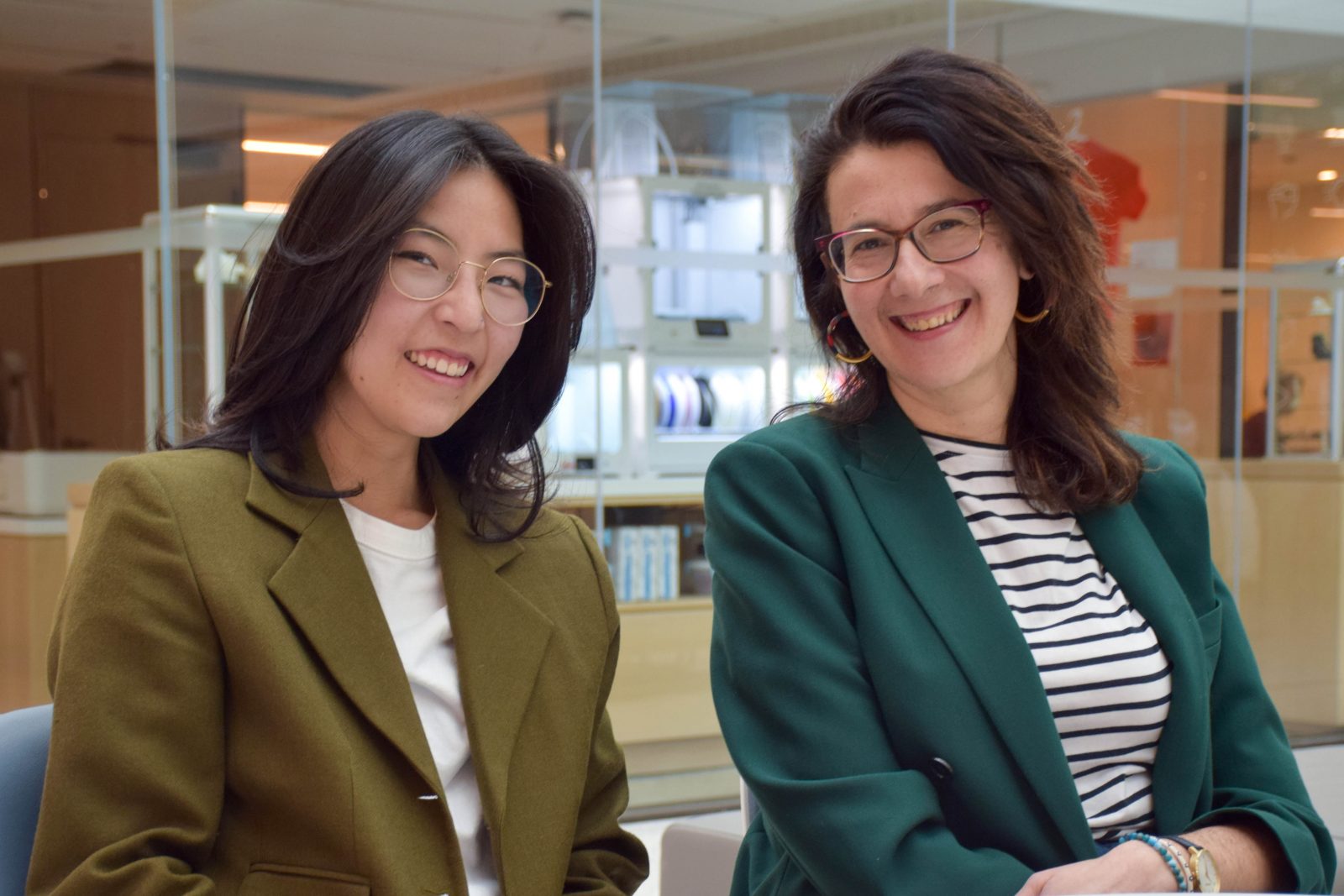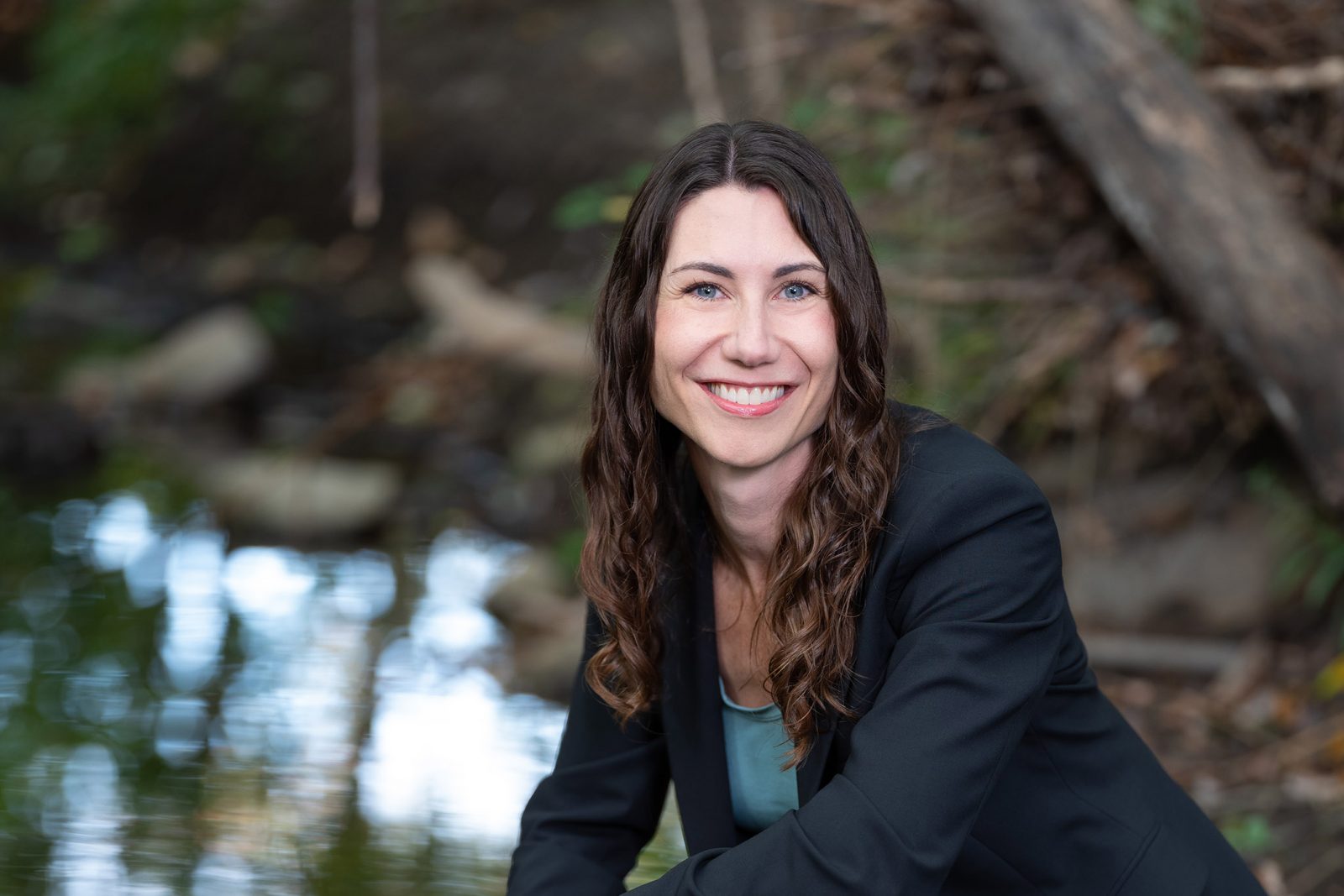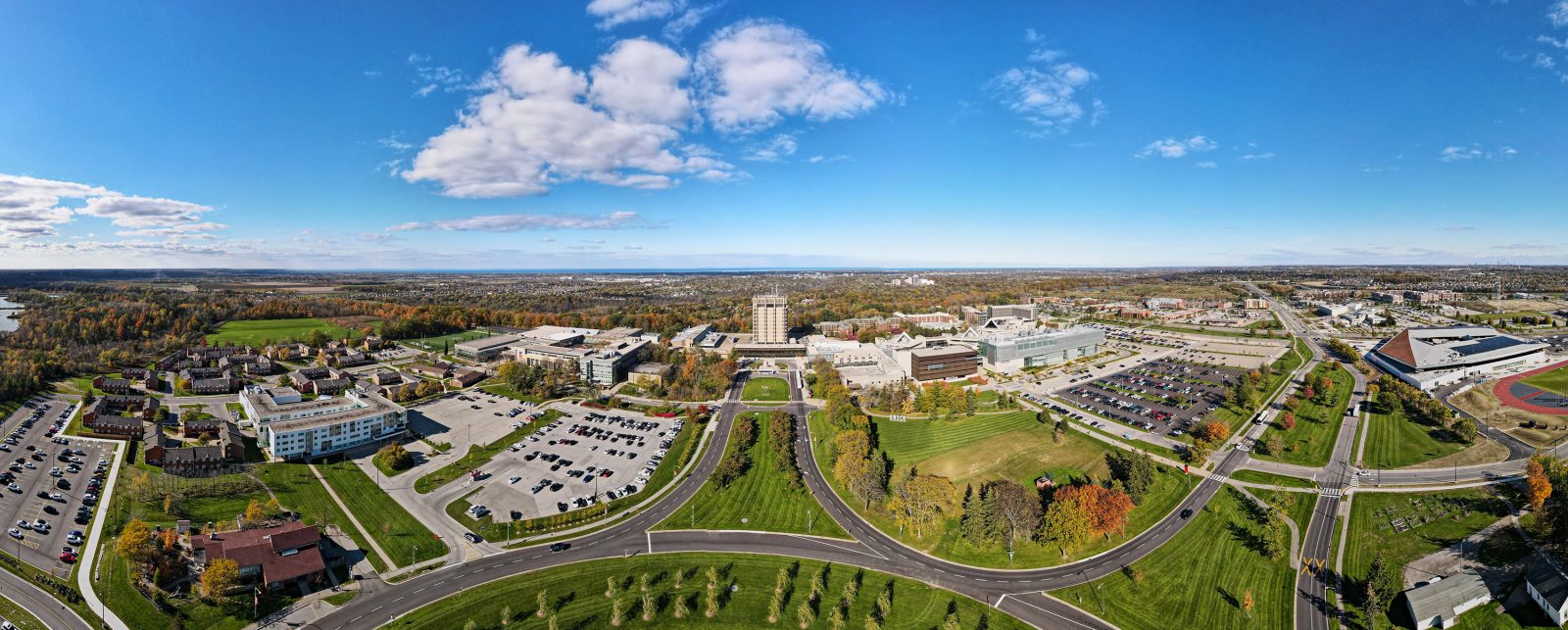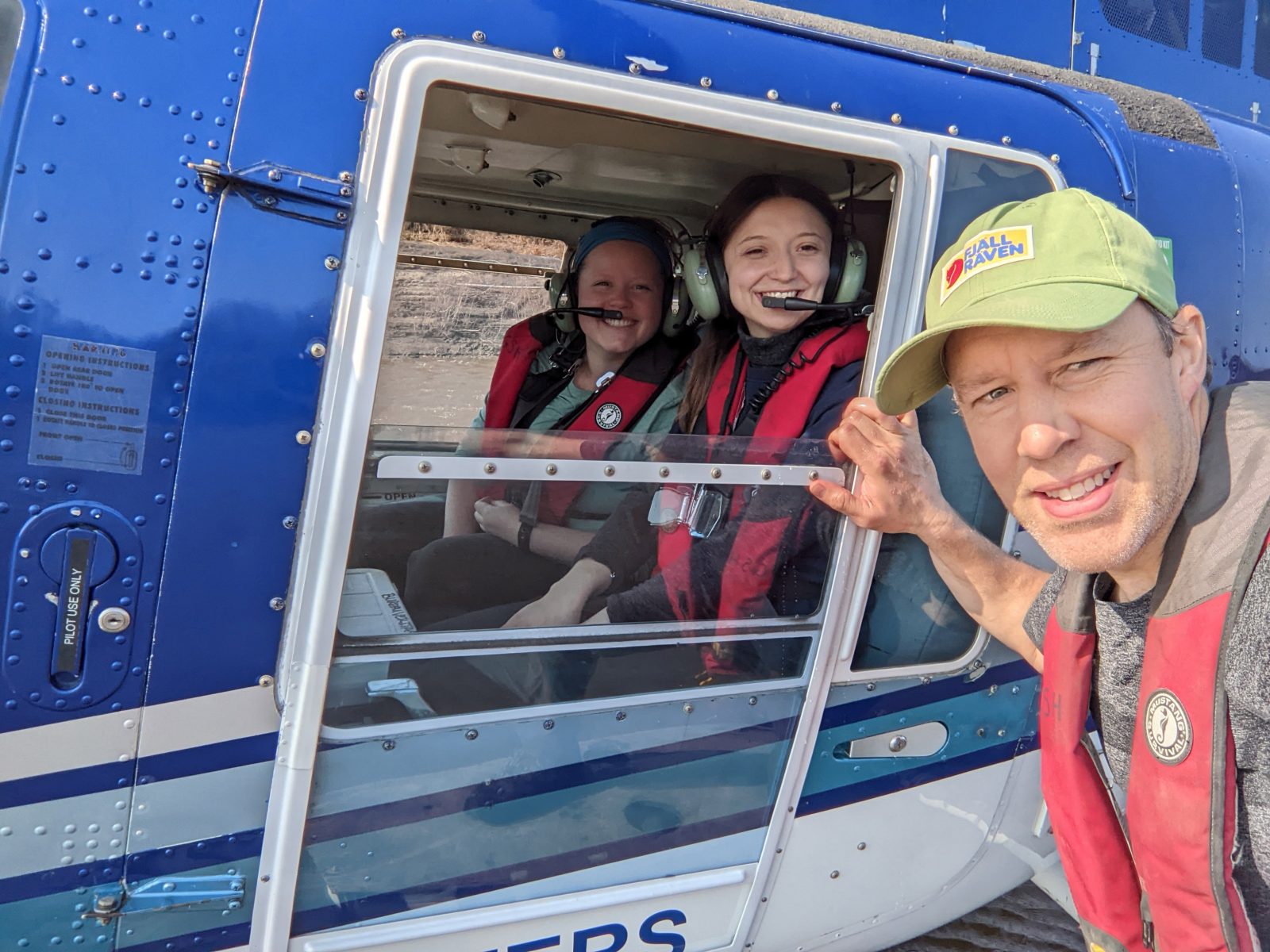
Brock University and the Niagara Parks Commission signed a Memorandum of Understanding Monday, April 29 that will see the two organizations work together to support environmental stewardship, sustainability research and experiential education. Lesley Rigg (seated left), Brock President and Vice-Chancellor, and Graham Coveney (seated right), Vice-Chair, Niagara Parks Commission, are joined by senior leaders of both organizations as well as faculty and staff involved in projects under the new MOU.
Brock University and the Niagara Parks Commission are growing their connection — with the preservation and enhancement of local landscapes in mind each step of the way.
The two organizations built on their longstanding history of collaboration Monday, April 29 by signing a new Memorandum of Understanding (MOU) that provides a renewed focus for the partnership.
An agency of the Government of Ontario, Niagara Parks is responsible for preserving and promoting the natural beauty and cultural heritage along the Niagara River, including managing parks and gardens, historical sites, recreational features and attractions. It is one of the oldest conservation authorities in North America, established in 1885 to preserve the area amidst growing industrialization and commercialization.
With environmental and cultural conservation a significant focus, Niagara Parks works to protect and restore natural habitats, promote sustainable practices, preserve historical sites and buildings of cultural significance, all while growing tourism to Niagara and the province of Ontario.
Throughout their rich history of collaboration, Brock and Niagara Parks have achieved remarkable milestones together. From groundbreaking research endeavours to immersive service-learning experiences, the partnership has left an indelible mark on both organizations and the communities they serve.
Expanding on this relationship to include more opportunities for students and different types of research will yield valuable insights that will impact the Niagara region for years to come, said Lesley Rigg, Brock President and Vice-Chancellor.
“We could not be prouder of the work that has come from our ongoing partnership with Niagara Parks and look forward to all that will be accomplished with this renewed focus now in place,” Rigg said. “It is by working together that we will continue to grow the life and vitality of our community, including Niagara’s breathtaking landscapes.”
The history of collaboration between Brock and Niagara Parks dates back far before the signing of their first official MOU in 2018. The original memorandum included projects with Brock’s Environmental Sustainability Research Centre (ESRC).
The partnership has since flourished, producing a multitude of impactful projects and initiatives aimed at advancing environmental stewardship, sustainability research and experiential education.
“Building on the incredible work in the field of environmental science that resulted from the 2018 MOU, we look forward to seeing this partnership grow to include other areas of study and continue to provide numerous mutual benefits for both of our organizations,” said Niagara Parks Vice-Chair Graham Coveney.
At the core of the new MOU lies a commitment to formalize and fortify the institutional bond between Brock and the NPC. This agreement paves the way for an ambitious agenda of collaborative endeavours encompassing research, education and service.
Central to the MOU’s activities are several pioneering projects spearheaded by Brock University faculty members:
- Associate Professor Julia Baird, from Brock’s Environmental Sustainability Research Centre, will lead efforts to build connectedness to nature and transform water governance through individual interventions.
- Associate Professor David Goldblum and Professor Michael Pisaric, from the Department of Geography and Tourism Studies, will investigate the response of trees to current and future climate conditions, shedding light on vital ecological dynamics.
- Associate Professor Elizabeth Vlossak from the Faculty of Humanities will oversee experiential service-learning projects aimed at enhancing site interpretation and asset creation.
These projects not only enrich the academic experience of students but also contribute to the preservation and promotion of the natural and cultural heritage of the Niagara region.
In addition, the partnership will continue to serve as a platform for meaningful dialogue and engagement with Indigenous communities to foster a deeper understanding of their cultural ties to the environment and amplify their voices in discussions surrounding climate resilience and environmental justice.


